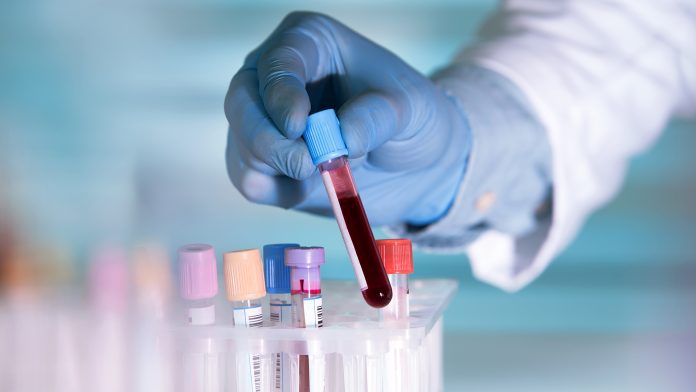
Researchers from the Herring group at the University of Oxford have developed a blood test that measures stress hormone levels after heart attacks.
In the UK, cardiovascular disease is the main cause of death. Around 100,000 large heart attack patients will be treated with an emergency procedure called primary percutaneous coronary intervention (PCI). Most patients will recover well, but around 25,000 will die.
New research from Herring lab researchers shows that routine testing for the stress hormone Neuropeptide Y (NPY) shortly following a heart attack could save thousands of lives.
The study is published in the Journal of the American Heart Association.
Investigating NPY levels in heart attack patients
The research team investigated the levels of NPY in the blood of 163 heart attack patients who had undergone emergency treatment to open up a blocked blood vessel. Once the NYP was released into the heart, the smallest blood vessels begin to narrow. Researchers found that two days after a heart attack, the smallest blood vessels in the heart remained narrow in patients with the highest NPY levels. Six months later, MRI scans found that such patients had more scarring in their hearts, resulting in the inability to pump blood efficiently.
Lead researcher Associate Professor Neil Herring said: “Our previous research has shown that NPY is raised during a heart attack, and local levels within the heart correlate with how well it recovers. What this new study adds is that high NPY levels, even when measured through a standard blood test from a vein, predict which patients go on to develop heart failure or die. This provides extremely useful information for doctors and we hope that developing drugs that target the receptors NPY acts on may really be game-changing for this cohort of patients, and the blood test could help spot those patients who may need it right from the start.”
Measuring NPY in patients following PCI treatment
NPY levels were measured in standard blood samples taken from the veins of patients when they underwent their PCI treatment. Researchers found that those patients with the highest NPY levels sustained more heart and lung damage, and their hearts were more likely to fail regardless of other risk factors in the next six years. During the follow-ups, 34 patients died or suffered heart failure. The team concluded that routine tests in the hours following a heart attack could help patients at a greater risk be spotted sooner and prioritised for treatment.
Professor Herring said: “This study identifies a ‘cut off’ value for the blood test, which helps identify those patients that do badly after their large heart attack. Ideally, further studies should then test this cut-off level in a different group of patients to ensure that it is robust in predicting heart failure and death. However, if successful, then it could be offered to all patients with large heart attacks undergoing emergency treatment.
“We’re confident that, in time, this stress hormone will become an effective target for future treatments to reduce the life-limiting effects of a heart attack.”






















